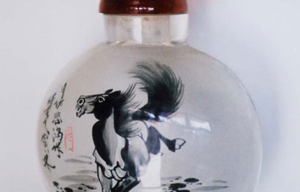Health
IN BRIEF (Page 19)
Updated: 2011-09-21 07:50
(China Daily)
Joint flexing at night sign of weak heart
Men who jerked and flexed their legs involuntarily at night were more likely to develop cardiovascular disease, says a new study of sleep and chronic disease in the 65-and-up demographic.
During a one-night sleep assessment, more than two-thirds of men had the involuntary movements, which usually occur in the foot or at the ankle or hip joint, and most of them woke up during the night because of it.
Those men had a higher risk of a combination of heart and blood vessel conditions, including heart attack, stroke and blocked or ruptured arteries. Although those events happened over a few years after researchers measured nighttime leg movements, the study isn't proof that overactive limbs caused the heart problems, researchers say.
Still, "people have to keep an open mind into some other possible risk factors for these things," says Dr Brian Koo, the study's lead author from Case Western Reserve University School of Medicine in Cleveland.
Serotonin levels linked to anger
Fluctuating levels of the brain chemical serotonin, often brought on when someone hasn't eaten or is stressed, affect brain regions that enable people to regulate anger, scientists say.
In a study using healthy volunteers, researchers from Britain's Cambridge University found that when serotonin levels are low, it may be more difficult for the brain to control emotional responses to anger.
Although reduced serotonin levels have previously been linked to aggression, this is the first study to show how this chemical helps regulate behavior in the brain as well as why some individuals may be more prone to aggression.
The results showed that low brain serotonin made communications between specific brain regions of the emotional limbic system of the brain - a structure called the amygdala - and the frontal lobes weaker compared to when serotonin levels are normal.
The researchers behind the work, which was published in the journal Biological Psychiatry, hope their findings could help in the search for new treatments for psychiatric disorders where violence and aggression are common symptoms.
Yogurt bacteria blocks pre-eclampsia
Pregnant women who regularly have milk or yogurt with "good" bacteria may be less likely to suffer the late-pregnancy complication known as pre-eclampsia, a new study finds.
Pre-eclampsia occurs when a woman has a sudden increase in blood pressure after the 20th week of pregnancy. Other signs include protein in the urine and swelling in the face and hands.
The disorder, which affects about 5 percent of all pregnant women, can be dangerous if unrecognized: It may progress to the rare condition eclampsia, which can cause the mother to have seizures or fall into a coma.
In the new study, researchers found that of more than 33,000 Norwegian women who gave birth over six years, those who consumed probiotic milk or yogurt every day during pregnancy were less likely to develop pre-eclampsia.
Of those women, 4.1 percent developed pre-eclampsia, compared with 5.6 percent of women who did not consume probiotic food.
No proof of soy link to low cholesterol
Taking extra soy supplements did not help stave off artery hardening in a new study of postmenopausal women.
But, researchers say, soy showed a possible benefit in young women just a few years after menopause - warranting more research in that age group.
The findings add to conflicting data about the role of soy in lowering blood pressure and cholesterol and reducing the risk of heart disease.
"I was not surprised" about the lack of a clear benefit, says William Wong, who studies nutrition and chronic disease at Baylor College of Medicine in Houston and wasn't involved in the new study. "So far the research (on soy) has been contradictory."
Researchers have theorized that since rates of cardiovascular disease are lower in Asia - where soy is an important component of the diet - there could be something protective about the nutrient-rich plant.
The current study, by the Keck School of Medicine of the University of Southern California in Los Angeles, shows there was not a clear difference in artery hardening among women taking soy or non-soy protein supplements.
Reuters-AP
E-paper

The snuff of dreams
Chinese collectors have discovered the value of beautiful bottles
Perils in relying on building boom
Fast forward to digital age
Bonds that tie China. UK
Specials

Let them eat cake
Cambridge University graduate develops thriving business selling cupcakes

A case is laid to rest
In 1937, a young woman'S body was found in beijing. paul french went searching for her killer

Banking on change
Leading economist says china must transform its growth model soon
